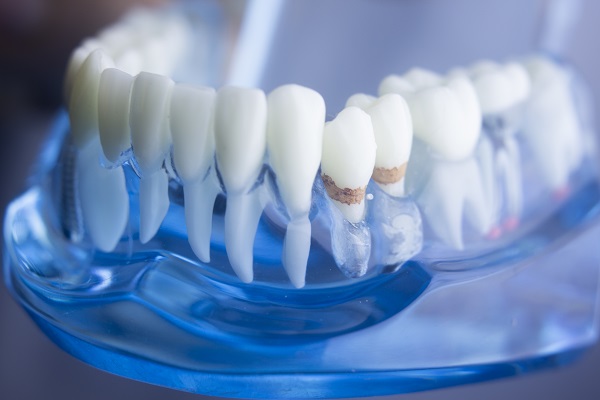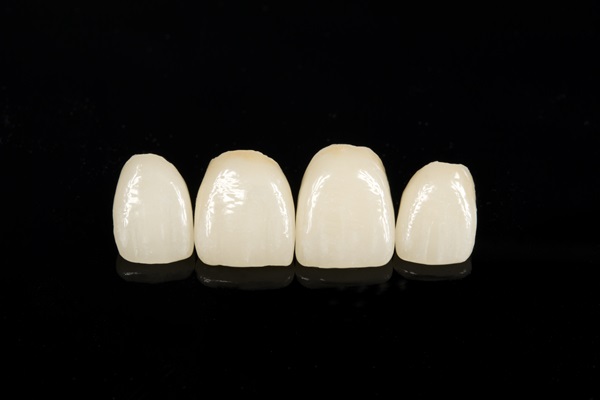How Treating Gum Disease Can Improve Your Smile

Gum disease or periodontitis begins when there is plaque accumulation on your teeth. Your oral health will start to deteriorate at the onset of periodontitis. This will affect your smile in a negative way. If you want to know how treating your gum disease can help improve your smile, here are the facts.
Root planing and scaling
Battling gum disease involves some elaborate in-office procedures. One of them is root planing, combined with scaling. A collective term for these treatments is deep cleaning. The dentist will use an ultrasound and manual scalers to remove plaque and tartar. Most patients need local anesthesia before having this treatment.
The patient must tell the dentist about medications they are taking before the deep cleaning procedure. Some of them might increase the patient’s risk of bleeding. Brushing and flossing daily keep teeth and gums healthy. Routine deep cleaning can prevent the worsening of gum disease. The absence of plaque and tartar results in a bright smile.
Pocket reduction
This procedure reduces the size of gum pockets. Some people have loose teeth. The gums do not hug their teeth anymore after deep cleaning. Keeping these areas of the gums clean may be challenging for some people. People in this situation are candidates for a flap surgery or pocket reduction procedure.
In this procedure, the dentist folds back the gum tissue to remove the bacteria. The dentist will smoothen the damaged bone. This will make the gums reattach to the healthy bone and hug the teeth better. This will make the person’s smile brighter and more stable as well.
Laser periodontal therapy
Good candidates for this treatment can expect promising outcomes. This may be a new therapy, but its benefits are evident. The laser enables the dentist to target the gum disease with accuracy. It is also a less invasive method with shorter downtime. The patient could then return to normal activities and show off a healthier smile.
Gum grafting
Gum disease can also result in gum recession. Gum grafts can help restore the exposed parts of teeth. In this procedure, the dentist will take some healthy gum tissue from the palate or another area of the mouth. This fresh tissue will cover the roots of at least one tooth.
This procedure will help decrease sensitivity. It will also prevent tooth decay while stopping bone loss and gum recession. The patient will take some time to recover. After the recovery period, the patient will not experience discomfort anymore as well.
Removing a periodontal abscess
A gum or periodontal abscess is also a consequence of gum disease. It is a swollen, red lesion along the gumline. Sudden sharp pain in the gums is a reason to see a dentist right away. Treatment of an abscess in the gums will involve draining the area. The dentist will then clean that part of the gums. Then, the dentist will prescribe a course of antibiotics to ensure that the infection will clear up.
Treating gum disease can bring back your beautiful smile
Suffering from periodontitis is never a good thing. Treating this dental condition can take time and many dental visits. With perseverance, you can regain your smile. An appointment with your dentist can confirm which gum disease treatment will suit your needs well.
Are you considering gum disease treatments in the East Hanover area? Get more information at https://easthanoverfamilydental.com.
Check out what others are saying about our dental services on Yelp: Gum Disease in East Hanover, NJ.
Related Posts
Many individuals are familiar with gum disease. What may be unknown, however, is the relationship of diabetes to problems with the gums. Diabetes is the result of multiple diseases within the body that accumulate from too much sugar in the bloodstream. Sugar often becomes the culprit that is responsible for an individual's gum disease. Continue…
Tooth decay does more damage than simply breaking down your teeth. It can lead to infections that can spread to the other parts of the body, it can increase your risk of heart disease and it can weaken your immune system. Good oral hygiene and biannual trips to the dentist are essential when it comes…
Choosing a general dentist to address gum disease is essential. General dentists undergo many years of training in order to learn how to provide their patients with optimal dental care services. One of the more important services they offer is dental check-ups, as this type of dental appointment is one that can help prevent a…
Regular, preventive dental procedures from a family dentist are key to preventing oral diseases, maintaining healthy oral health, protecting your teeth from pain, and ensuring your smile can last a lifetime. Preventive dental procedures allow your dentist to monitor your oral health and locate any minor issues before they become painful, expensive issues that can…


